AATIKE’s Aligulimane is an ancient Indian mathematical strategy board game originated from South India. It is also called as Chenne Mane or Pallanguzhi.
Made of Mango wood and is handcrafted by artisans on Sharanpur. It is a game of ‘Sow’ and”Reap’.
This game is played by all ages in rural India & is a delightful game for the entire family.
How to Play?
Ali Guli Mane uses two rows of 7 holes each. Each player “owns” the row of holes closest to him. The game starts with 70 pieces (Seeds), with 5 in each hole.
In each turn, the player removes all seeds from a hole and distributes them clockwise or anti-clockwise, at his or her own choice. This sowing is done sequentially but the principle is slightly different from that used in a game like Pallanguzhi. Once the last of the seeds is placed, the player takes all the seeds in the next hole (clockwise or anti-clockwise as per the sowing) and continues placing them in this way.
If the next hole is empty (saada), the player stops and captures all the seeds in the hole next to the empty one, and all those in the hole opposite it. For instance, if an anti-clockwise sowing ends in A5 (and A4 is empty) then the player captures the contents of A3 and B3.
A1 A2 A3 A4 A5 A6 A7
B1 B2 B3 B4 B5 B6 B7
The player can take two sowings, if he captured in the first one; thus the turn ends after two saadas.
In the next round, each player tries to fill his holes with five counters from his winnings. These holes which cannot be filled are marked with a pebble or a twig and are avoided for further play. The match is continued until one player is unable to fill even one hole.
Winner : The game is finished when all counters are taken and is won by the player who has captured the most seeds.
Made of Mango wood and is handcrafted by artisans on Saharanpur. It is a game of ‘Sow’ and”Reap’.
This game is played by all ages in rural India & is a delightful game for the entire family.

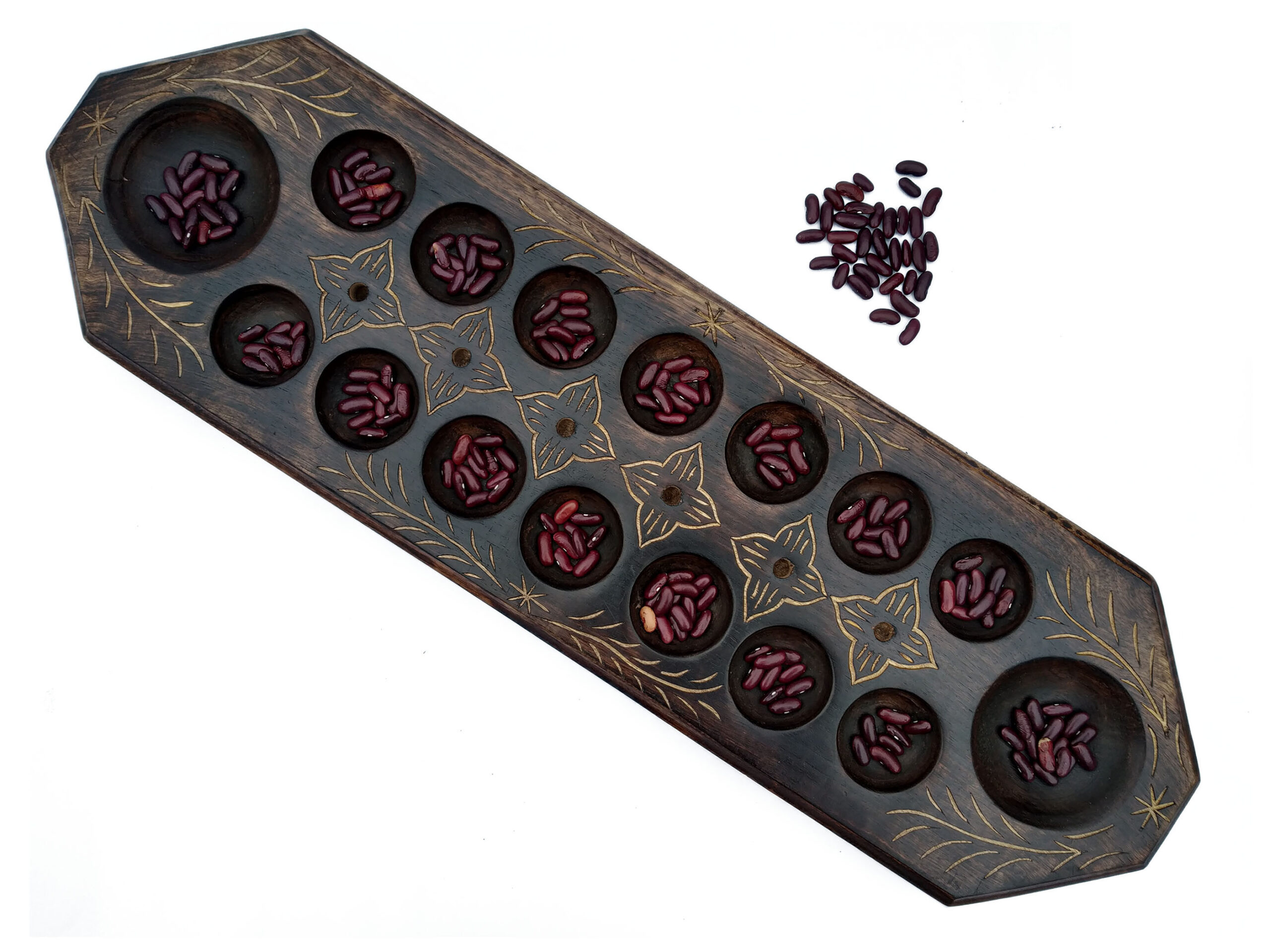
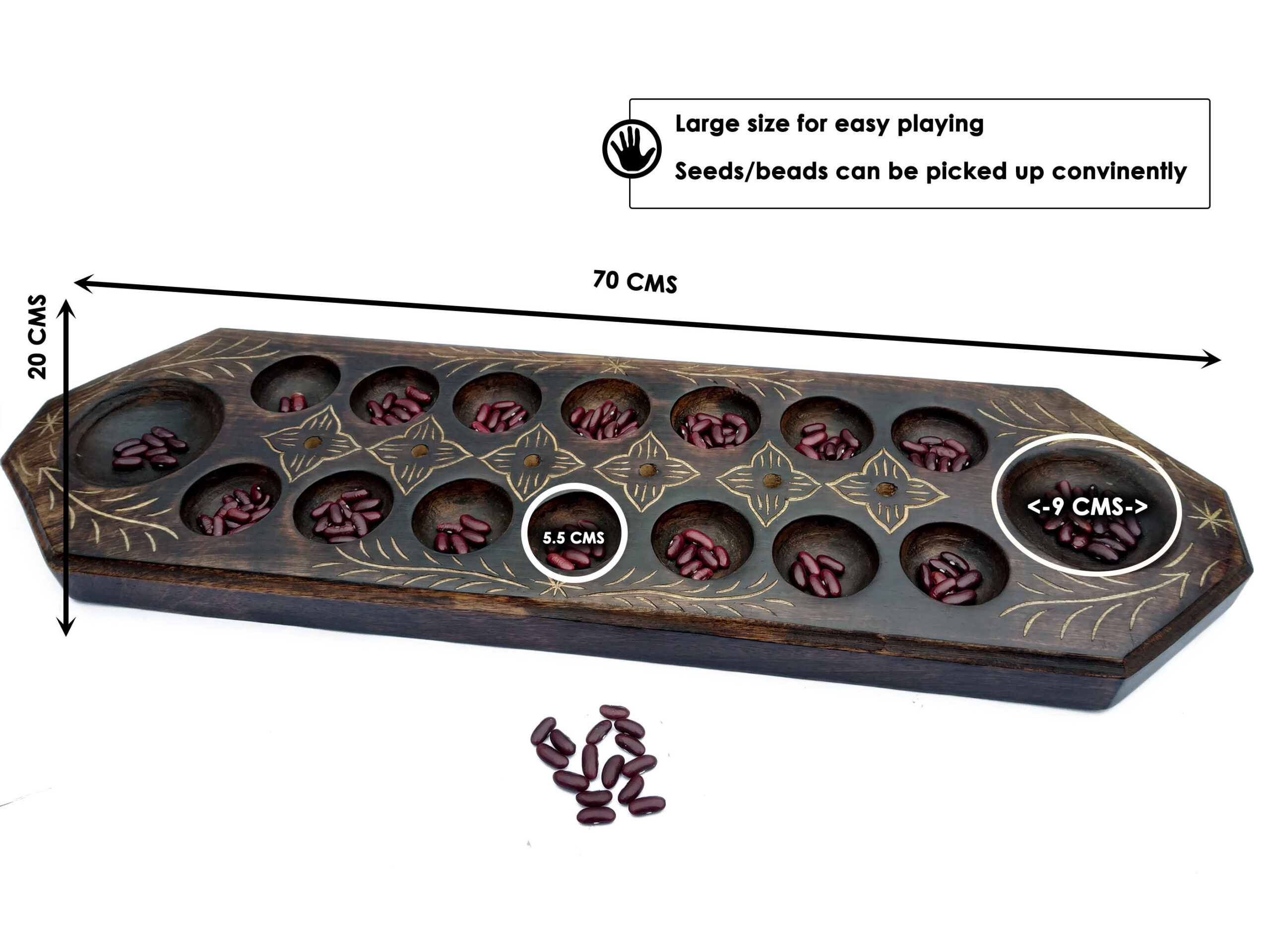
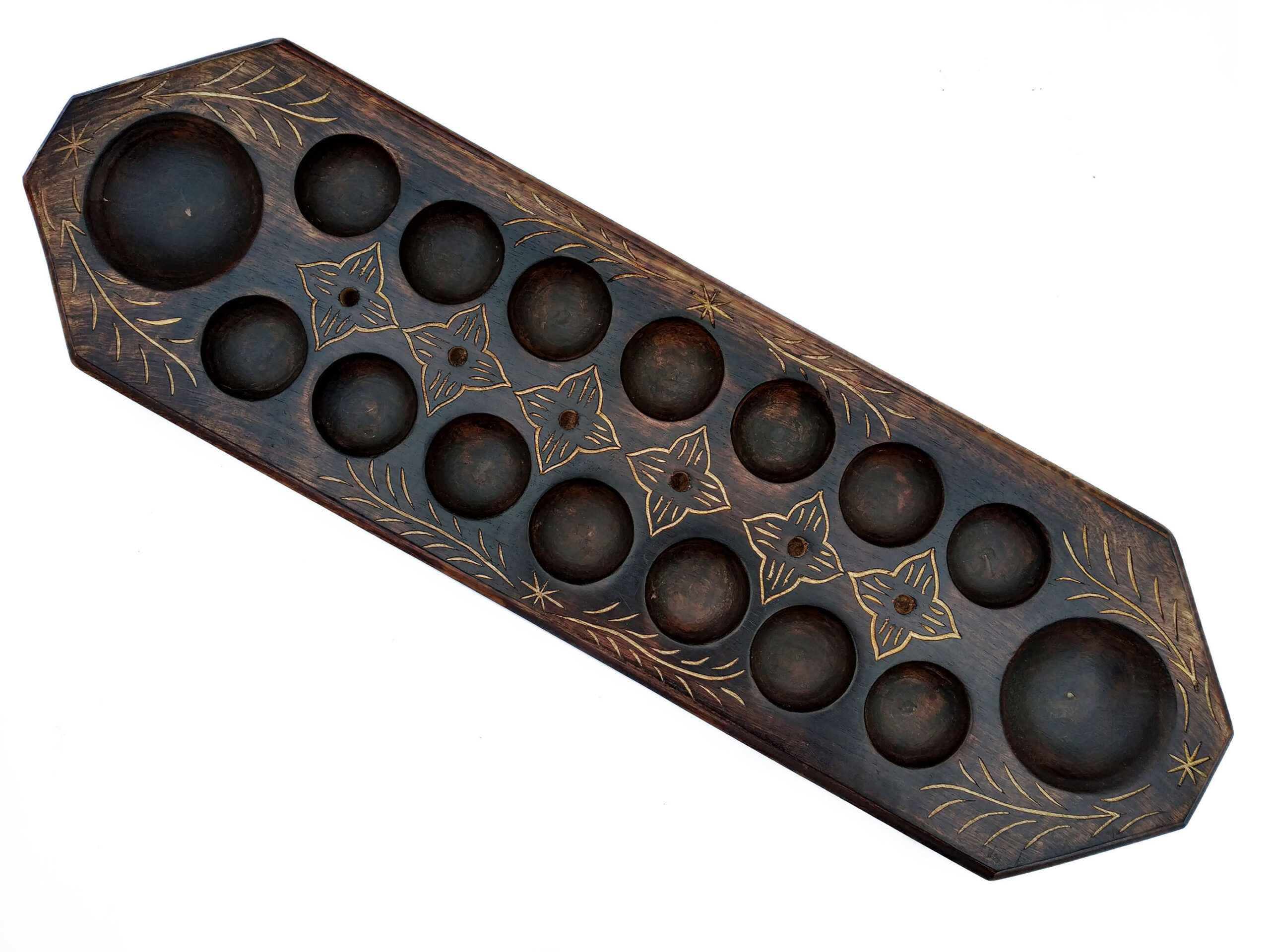

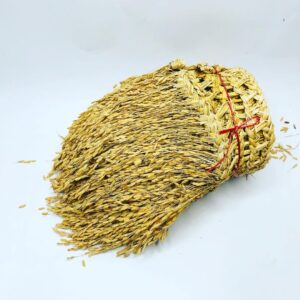
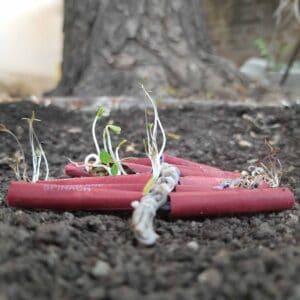

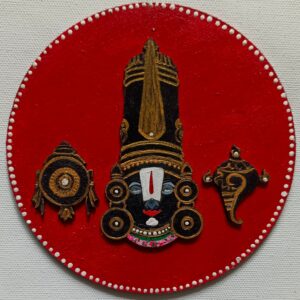




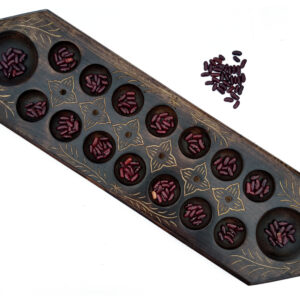
Reviews
There are no reviews yet.